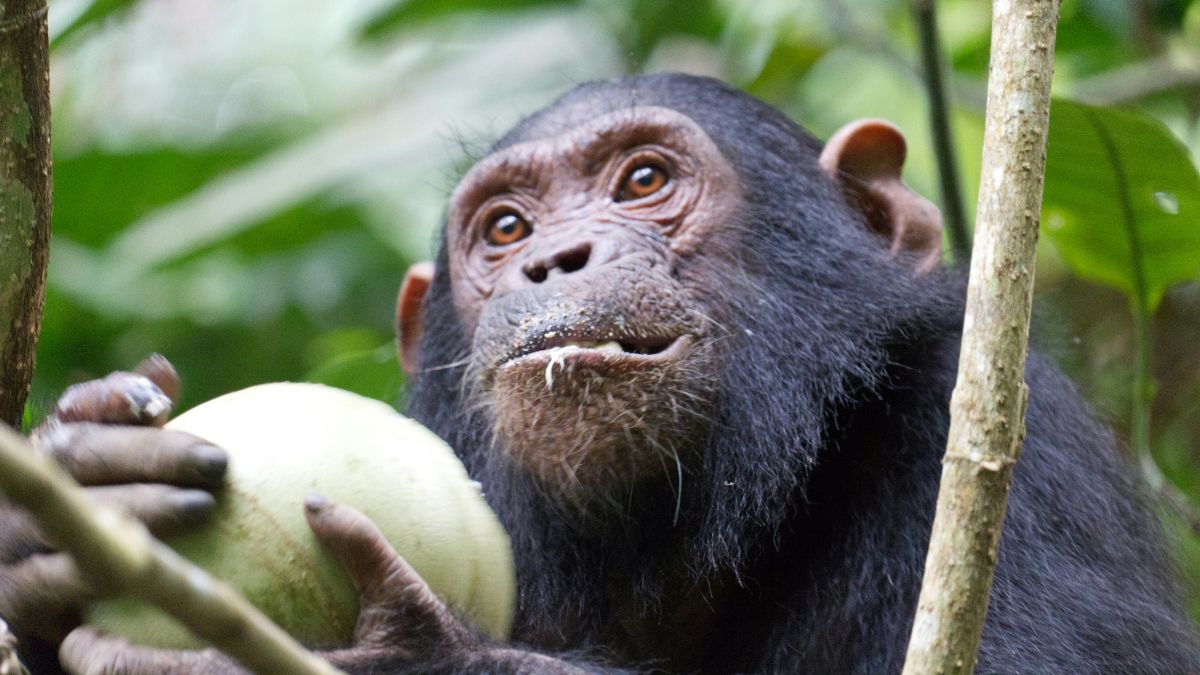Science
The Monk Who Saw the Future: Did an 11th-Century Benedictine Beat Astronomers?
17 February 2026

Chimpanzees are utilizing nature in a way that might surprise us. Scientists in California have discovered that wild chimpanzees regularly consume overripe, fermenting fruit—and this phenomenon might explain a lot about human evolution. New research on chimpanzee diet and evolution offers insights into why we like alcohol.
In African forests, chimpanzees reach for fruit almost continuously—each day, they consume enough to make up about ten percent of their body mass. Significantly, some of these treats undergo natural fermentation, causing the animals to regularly ingest small amounts of ethanol.
Intrigued by this phenomenon, scientists from the University of California, Berkeley, decided to investigate just how large this dose is.
The team observed two chimpanzee populations—in Uganda’s Kibale National Park and Taï National Park in Côte d’Ivoire. They counted 21 species of fruit that regularly feature in the chimps’ diet and then tested how much natural ethanol they contained. The results surprised even the researchers: the average chimpanzee ingests an amount of the substance daily equivalent to what a human would consume in a small shot of high-proof liquor.
“It is difficult to tell exactly how much this consumption influences chimpanzee behavior,” admits Aleksey Maro, the lead author of the study published in Science Advances, in a statement to Reuters. “We know that the very presence of large amounts of ripe fruit influences how often they embark on territorial patrols and hunts,” he notes.
Although chimpanzees consume portions of overripe fruit every day, they show no visible signs of impairment. Why? Because nature devised its own method: the animals consume the fermenting fruit slowly, over many hours, and the small amounts of the substance are metabolized almost immediately in their bodies.
Fruit is the foundation of their lives, making up over 70 percent of their diet. The rhythm of the chimpanzees’ day is set by the ripening of various species. “Their lives essentially revolve around what is currently ripening,” explains Aleksey Maro.
In Uganda, they most often choose figs; in Côte d’Ivoire, they prefer local plum-like fruits. But where does this natural “spark of fermentation” come from? Researchers believe it’s the result of yeast and microorganisms that develop inside the fruit before it begins to rot. It is precisely this process that makes the fruits slightly fermented—and, as it turns out, attractive not only to humans but also to our closest relatives for millions of years.
Do chimpanzees deliberately choose fruits with higher alcohol content? “That is quite likely,” Maro admits. “We hypothesize they assess whether to eat a fruit partly based on the smell of ethanol.” When calculated by body mass—a typical chimpanzee weighs just over half as much as an average human—their daily alcohol intake corresponds to roughly two standard drinks for an adult human.
So, why should humans care about what chimpanzees eat? The ethanol in their diet can tell us a lot about the evolution of our species. The results of the American study lend support to the Drunken Monkey Hypothesis, proposed by Professor Robert Dudley. According to this theory, the human propensity for drinking alcohol was inherited from our evolutionary ancestors.
Dudley posits that alcohol consumption was a way for our ancestors to gain valuable calories and ensure survival. The scientist calls the urge to reach for alcohol “the evolutionary hangover.” For our ancestors, it was a mechanism facilitating survival, just as it is for chimpanzees today. Over the years, however, it led to humanity developing a tendency toward alcoholism. Ultimately, this research on chimpanzee diet and evolution provides a strong link between survival mechanisms and a modern behavioral tendency.
Read this artcile in Polish: Dlaczego małpy jedzą sfermentowane owoce? To wiele mówi o ewolucji człowieka
Science
17 February 2026



Zmień tryb na ciemny